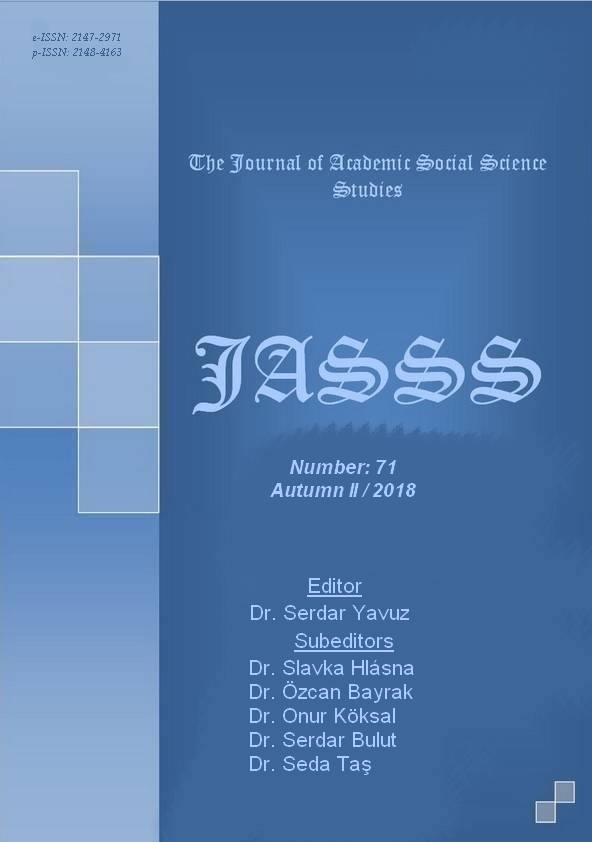Author :
Abstract
Önceden birbirinden uzak iki sektör olarak algılanan sağlık ve turizm artık bir araya gelerek insanların yaşam kalitelerini artırmaya yardımcı olan “konaklama hizmetlerinin sağlık ile buluşması (Hospitality Bridging Healthcare - H2H)” şeklinde bir turizm çeşidine dönüşmüştür (DeMicco, 2017). Bu süreçte, olumlu mesajlar içeren turizm, sağlığa ulaşılmasını mümkün kılan bir araç rolü oynamaktadır. Sağlık, sadece hastalığın karşıtı olma anlamından hızlı bir şekilde sıyrılarak “kendini iyi hissetme hali” yani wellness olarak algılanmaya ve adlandırılmaya başlanmaktadır. Bu bağlamda, sağlığı geri kazanma yanında sağlığı koruma, artırma ve geliştirme gibi kavramlar da karşımıza çıkmaktadır. Sağlık turizminin birçok çeşidi olmakla birlikte, çoğunlukla medikal turizm ve wellness turizmi, uluslararası sağlık turizminde öne çıkan turizm çeşitleridir. Özellikle medikal turizm, oluşturduğu katma değerden dolayı hem gelişmiş ülkelerin hem de gelişmekte olan ülkelerin ekonomi programlarına aldıkları bir turistik ürün çeşididir. Teknolojinin gelişmesi, ulaşım imkânlarının iyileşmesi, insan ömrünün uzaması, turizm bilincinin oluşması, kentleşmenin artması gibi nedenlerden dolayı insanlar artarak çeşitli turizm faaliyetlerine katılmaktadır. Bunlar turizmin gelişmesine etki eden başlıca faktörler olmakla birlikte sağlık turizminin gelişmesine de katkıda bulunmaktadır. Bu çalışmada sağlık turizmi destinasyonlarının bulunduğu ülkelerin sağlık sistemi ve sağlık koşullarının, sağlık turizmindeki rekabeti etkileyip etkilemediğinin ortaya konulması amaçlanmıştır. Burada şöyle bir hipotez ortaya atılabilir: “Sağlık turizmindeki rekabet ülkelerin sağlık sistemi ve sağlık koşullarına dayanmaktadır.” Bu hipotezden yola çıkarak çalışma sürecinde bir taraftan sağlık turizmi açıklanmış bir taraftan da bu hipoteze yönelik cevaplar aranmaya çalışılmıştır. Araştırma sonucunda, gelişmekte olan ülkelerin sağlık turizminde genellikle özel sektör kuruluşları ile hizmet verdikleri anlaşılmıştır. Bu durumun da o ülkelerin genel sağlık standartlarını yansıtmadığı ortaya konmuştur.
Keywords
Abstract
The concepts of health and tourism, which had always been regarded as two distant sectors, have now come together and turned into a tourism type that helps enhancing living standards of people; Hospitality Bridging Healthcare (H2H) (DeMicco, 2017). In this context, tourism, carrying positive messages, acts as a medium that brings people and healthcare together. Health is no longer regarded as the opposite of illness; it is now perceived as and called wellness, “the state of being in good health, and feeling good”. Within this context, besides recuperating, we have also become familiar with the concepts, such as keeping healthy, becoming healthier, and enhancing health. Although there are various types of health tourism, medical tourism and wellness tourism stand out among the others in international health tourism industry. Especially medical tourism is a type of tourism product, which is included in economic programs of both developed and developing countries due to its huge amount of added value it creates. Due to the reasons, such as advancements in technology and means of transportation, extending lifetime of humans, increasing tourism awareness and urbanization, people are now participating in various tourism activities. Although these are some of the main factors that affect the development of tourism, they also contribute to development of health tourism. This study aims to reveal whether the healthcare systems and health conditions of the tourism destinations have an impact on competitiveness in health tourism. Here, the following hypothesis may be suggested: “The competitiveness in health tourism depends on healthcare systems and health conditions of the countries.” Based on this hypothesis, the author both explained and described the health tourism and suggested answers to this hypothesis in this study. at the end of this study, it was observed that the developing countries offer health tourism through private enterprises, and it was found that this does not reflect the general healthcare standards of the said country.





